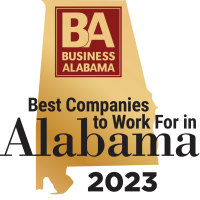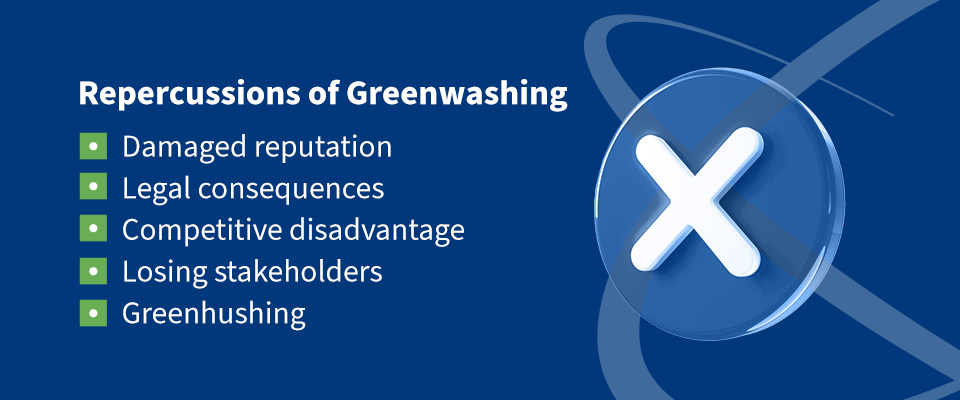
The term “greenwashing” comes from the words “green,” which is associated with environmentalism, and “whitewashing,” which means covering up or glossing over negative aspects. Greenwashing is a deceptive marketing practice that some organizations use to exaggerate or misrepresent their environmental impact or sustainability efforts. These claims are often about an organization’s eco-friendly stance and ecological responsibility, aiming to appeal to environmentally conscious consumers.
What Is Greenwashing in Business?
Greenwashing as a practice misleads consumers, creating an illusion that an organization is more environmentally responsible than it actually is, which may influence purchasing decisions. Some greenwashing examples include overly bold claims, token gestures and vague language. Companies may greenwash the public in the following ways:
- False advertising: Organizations may advertise their minimal carbon footprint without showing how they have reduced emissions or achieved sustainable sourcing practices.
- Misleading buzzwords: Companies may introduce buzzwords into their branding and omit that some elements of their manufacturing or features within products do not adhere to environmentally friendly standards.
- Misrepresentation: An organization may claim to be environmentally friendly as an entire company when, in reality, only one part of its operations could be accurately viewed as sustainable.
- Disregarding production emissions: A company may state that its products are made of sustainable materials, such as recycled plastics, but fail to mention any information about their production emissions.
Why Do Companies Greenwash?
Today, there is a great sense of urgency to engage in environmentally friendly practices, with 64% of American consumers opting for sustainable goods and services over alternatives. As a result, many companies are adjusting their operations to become more environmentally friendly — one example is working toward becoming carbon neutral.
However, adopting these practices takes considerable time and effort, and some organizations may not wish to invest their resources to achieve genuine sustainability. Instead, they make untrue or only partially true claims to capitalize on the demand for environmentally conscious products and operations. By embellishing their stance, they then make the most of the lack of regulatory policies or inconsistent regulations that verify such claims.
What Are the Repercussions of Greenwashing?
While greenwashing is not illegal, this type of marketing is seen as deceptive, and new rules are being implemented against such practices in certain sectors. There are several negative repercussions for organizations engaging in this deceptive practice:
- Damaged reputation: Greenwashing damages the trust between an organization and consumers as the reputation of trust erodes quickly when the truth of their business practice comes to light.
- Legal consequences: In extreme cases, regulatory bodies may issue fines for greenwashing or take legal action against companies that use greenwashing in their marketing efforts.
- Competitive disadvantage: Organizations engaging in genuine sustainability efforts may see a rise in competitive disadvantage when their counterparts use grandiose false claims that exceed their honest endeavors.
- Losing stakeholders: Companies caught greenwashing could lose business partners, investors and other significant partnerships.
- Greenhushing: “Greenhushing” is the opposite of greenwashing. Negative repercussions for companies that greenwash may cause organizations with legitimately sustainable techniques to be hesitant to reveal their practices for fear of greenwashing accusations.
How the Federal Trade Commission Protects Consumers
In the United States, the Federal Trade Commission (FTC) publishes Green Guides that aim to protect consumers from misleading advertising through laws that create a fair and competitive marketplace. These Green Guides offer a few tips to help consumers differentiate truly green products from those that are greenwashed:
- Packaging: Advertising and product packaging must explain any sustainability claims straightforwardly.
- Specifications: Any claims must specify whether they relate to the product, packaging or a portion thereof.
- Direct communication: Claims may not overstate or imply an environmental benefit where there is little or none.
- Substantiated claims: All claims must have substantial references and validation from authoritative institutions.
The FTC also actively monitors organizations’ advertising practices to identify corporate greenwashing, with investigations into those suspected of making misleading environmental claims and legal action, fines and advertising bans against those found guilty. The FTC encourages consumers to report instances of greenwashing to help keep marketing practices compliant.
How to Avoid Greenwashing
Organizations that legitimately produce sustainable products or incorporate business practices can use the following tactics to support their efforts publicly:
- Cut the buzzwords: Avoid using buzzwords like “eco-friendly” without providing clear evidence of how these terms apply to your business or products.
- Say no to hypocrisies: If you manufacture a product that is energy efficient, avoid using that fact in marketing if your organization does not also employ sustainable practices in its factories, like cutting back on emissions or using energy efficient products in the building.
- Avoid false labels: Only use labels to qualify a product as “eco-friendly” with branding that belongs to a credible third party.
The gist of these points is to show, not tell. It is essential to make all claims clear and easy to understand and provide accreditation from a reputable third party. It is also vital to back any claims with verifiable data and honesty. Ads and packaging should include accurate information without using color psychology to support messaging on a subconscious level.
How to Spot Greenwashing
Consumers should evaluate the credibility and transparency of a business’s environmental efforts to avoid falling for greenwashing. When organizations do not offer evidence or data to support their claims of being energy efficient, sourcing sustainably or minimizing factory emissions, there is a good chance they are not making honest claims.
While verifying these companies’ information may be challenging, third-party research and analysis reports can support or unveil their statements. Customers should look for product labels from official organizations like Green Seal and Energy Star and see if company websites publish reports about their sustainability efforts.
Invest in Energy-Saving Products From Quincy Compressor
In a world increasingly focused on sustainability, transparency and accountability, organizations engaging in deceptive advertising that encompasses greenwashing will not thrive. Between regulatory bodies like the FTC protecting consumers and tech-savvy consumers identifying false claims and inconsistencies, companies truly engaging in energy-efficient practices will succeed.
A leading air compressor manufacturer since 1920, Quincy Compressor manufactures reliable, high-quality and energy-saving products that help our customers reduce their carbon footprints. We aim to support your energy conservation efforts with our products, value-adding educational efforts and 24-hour service support through our authorized partners. Contact us today to purchase products that offer a greener choice through energy savings.



